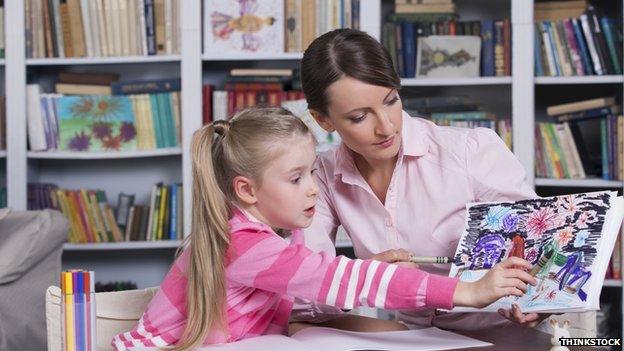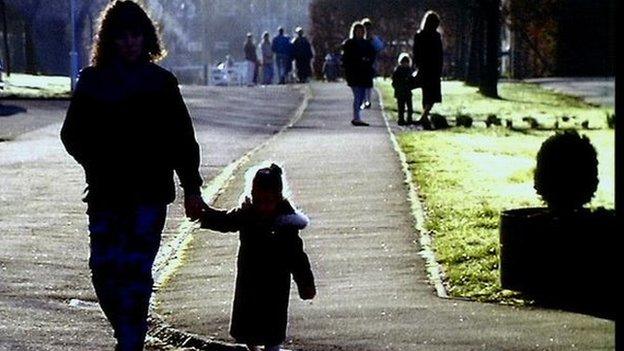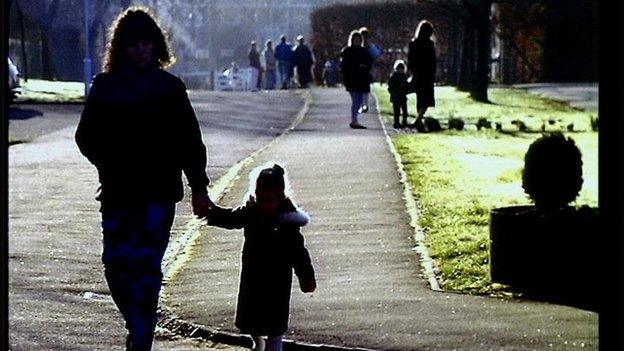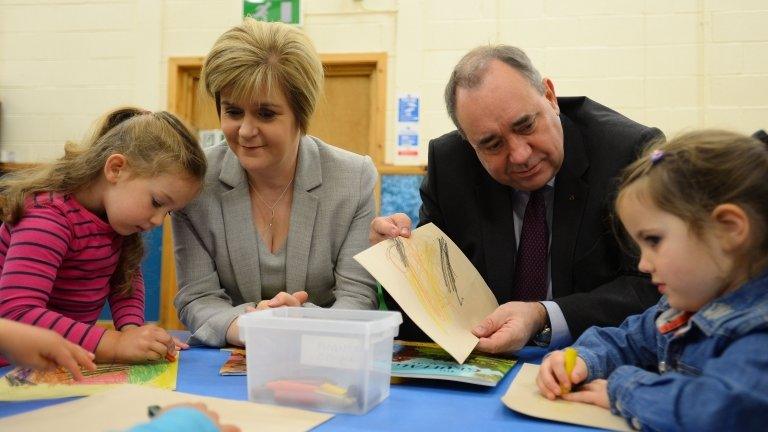'Named person' critics step up campaign
- Published

All children in Scotland under the age of 18 are due to have a "named person" by 2016
Opponents of plans to appoint a "named person" for every child in Scotland have stepped up their campaign ahead of legal action against the policy.
The measure, which assigns a single point of contact to look out for under-18s, is already being piloted.
But the No To Named Persons (NO2NP) coalition claimed the policy breached data protection and human rights laws.
The Scottish government said the policy represented the "best interests" of young people.
The initiative, part of the Children and Young People's (Scotland) Act is already being rolled out in parts of Scotland including Highland, Edinburgh, Fife, Angus and South Ayrshire, and means every child in Scotland will have a "named" teacher, health visitor or other professional looking out for their welfare.
It is due to be extended to other parts of Scotland in 2016.

Ministers have said the person would act as a liaison between the child, their family and access to any services they may need.
Those in favour also believe it would help stop vulnerable children slipping through the net.
'Privacy breach'
However, critics - including some Christian groups - have said the policy is "anti-democratic" and diminishes the role of parents.
The Scottish courts have already refused a petition for a judicial review of the legislation at the Court of Session, but NO2NP appealed the decision.
A panel of three judges will now consider the case again during a two-day hearing at the court due to start on Wednesday.
A spokesman for NO2NP, which has been gathering signatures from parents against the move, said: "We remain deeply concerned about the threats to the human rights of families to their privacy in their own homes as well as the breaches of data protection laws as the state passes confidential family information to and from different public bodies.
"It is anti-democratic, breaches the privacy of families and is an unwelcome intrusion into the lives of ordinary mums and dads trying to do their best to bring up their children.
"The state thinks the named person - a health visitor, a teacher or other professional - can fulfil the role better than mums and dads which is ridiculous."
'Support from experts'
The legal challenge is being led by the Christian Institute with the support of the Christian charity Care, the Tymes Trust and the Family Education Trust as well as some academics and parents.
A spokesman for the Scottish government said the courts had ruled that the policy does not contravene ECHR rights or EU law.
He added: "The ruling also found that the service was developed carefully over more than a decade with extensive input and wide support from experts and encourages professionals to work together.
"It also recognised that through prevention and early intervention, the service seeks to put the best interests of every child at the heart of decision making.
"The 'named person' will offer advice or assistance when it's needed, there is no obligation on parents or children to approach the service."
- Published6 February 2015

- Published22 January 2015

- Published9 July 2014

- Published29 June 2014
